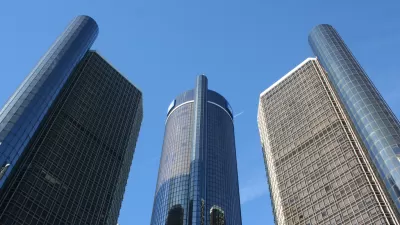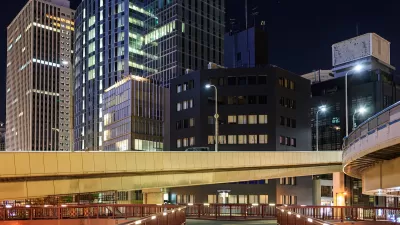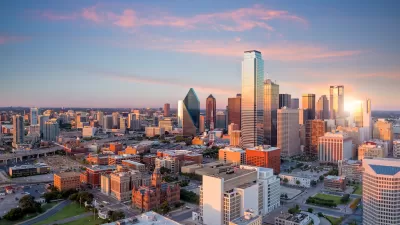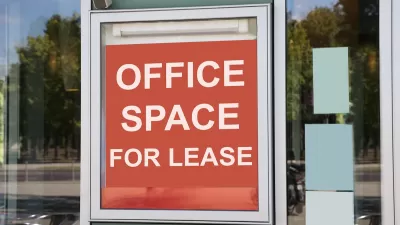Adaptive reuse is a hot concept, but regulatory and financial hurdles have made it slow to catch on in practice.

With many companies offering their employees long-term remote work and ending their leases on large urban office buildings, the future of business districts may lie in adaptive reuse, writes Henry Grabar in Slate. "Many business districts face the highest vacancy rates in decades, and a hundred million square feet of new supply from the pre-pandemic cycle is still coming online each quarter."
"There’s ample precedent for adaptive reuse as an engine of urban revitalization. Light industrial buildings in New York City’s Cast Iron Historic District (today’s SoHo) were converted into live-work lofts starting in the 1960s. The rich stock of 20th century office buildings in Chicago and Los Angeles have been converted into apartments. New England mills have been appropriated as hotels and museums."
Adaptive reuse is "one of the greenest constructions you can do," says Scott Maenpaa, a project manager at Boston-based the Architectural Team, and can be 20 to 30 percent cheaper than new construction, but conversions across the country have been relatively slow. Long-term leases, in many cases ten years or more, are creating a lag in office building vacancy, and a complicated legal landscape makes the process difficult and expensive. So far, "office owners by and large aren’t yet trying to unload their buildings at conversion-friendly prices."
"'The current controls in place make it really difficult to be able to convert from office or hotel to residential,' said Sheila Pozon, a land use lawyer at Kramer Levin." Cities like Dallas and Baltimore "did not see significant conversion of older offices until they offered sizable tax breaks," indicating that, while adaptive reuse seems "a bigger trend will require a push."
FULL STORY: Could Your Empty Office Turn Into Apartments?

Maui's Vacation Rental Debate Turns Ugly
Verbal attacks, misinformation campaigns and fistfights plague a high-stakes debate to convert thousands of vacation rentals into long-term housing.

Planetizen Federal Action Tracker
A weekly monitor of how Trump’s orders and actions are impacting planners and planning in America.

In Urban Planning, AI Prompting Could be the New Design Thinking
Creativity has long been key to great urban design. What if we see AI as our new creative partner?

Portland Raises Parking Fees to Pay for Street Maintenance
The city is struggling to bridge a massive budget gap at the Bureau of Transportation, which largely depleted its reserves during the Civd-19 pandemic.

Spokane Mayor Introduces Housing Reforms Package
Mayor Lisa Brown’s proposals include deferring or waiving some development fees to encourage more affordable housing development.

Houston Mayor Kills Another Bike Lane
The mayor rejected a proposed bike lane in the Montrose district in keeping with his pledge to maintain car lanes.
Urban Design for Planners 1: Software Tools
This six-course series explores essential urban design concepts using open source software and equips planners with the tools they need to participate fully in the urban design process.
Planning for Universal Design
Learn the tools for implementing Universal Design in planning regulations.
Gallatin County Department of Planning & Community Development
Heyer Gruel & Associates PA
JM Goldson LLC
City of Camden Redevelopment Agency
City of Astoria
Transportation Research & Education Center (TREC) at Portland State University
Jefferson Parish Government
Camden Redevelopment Agency
City of Claremont





























